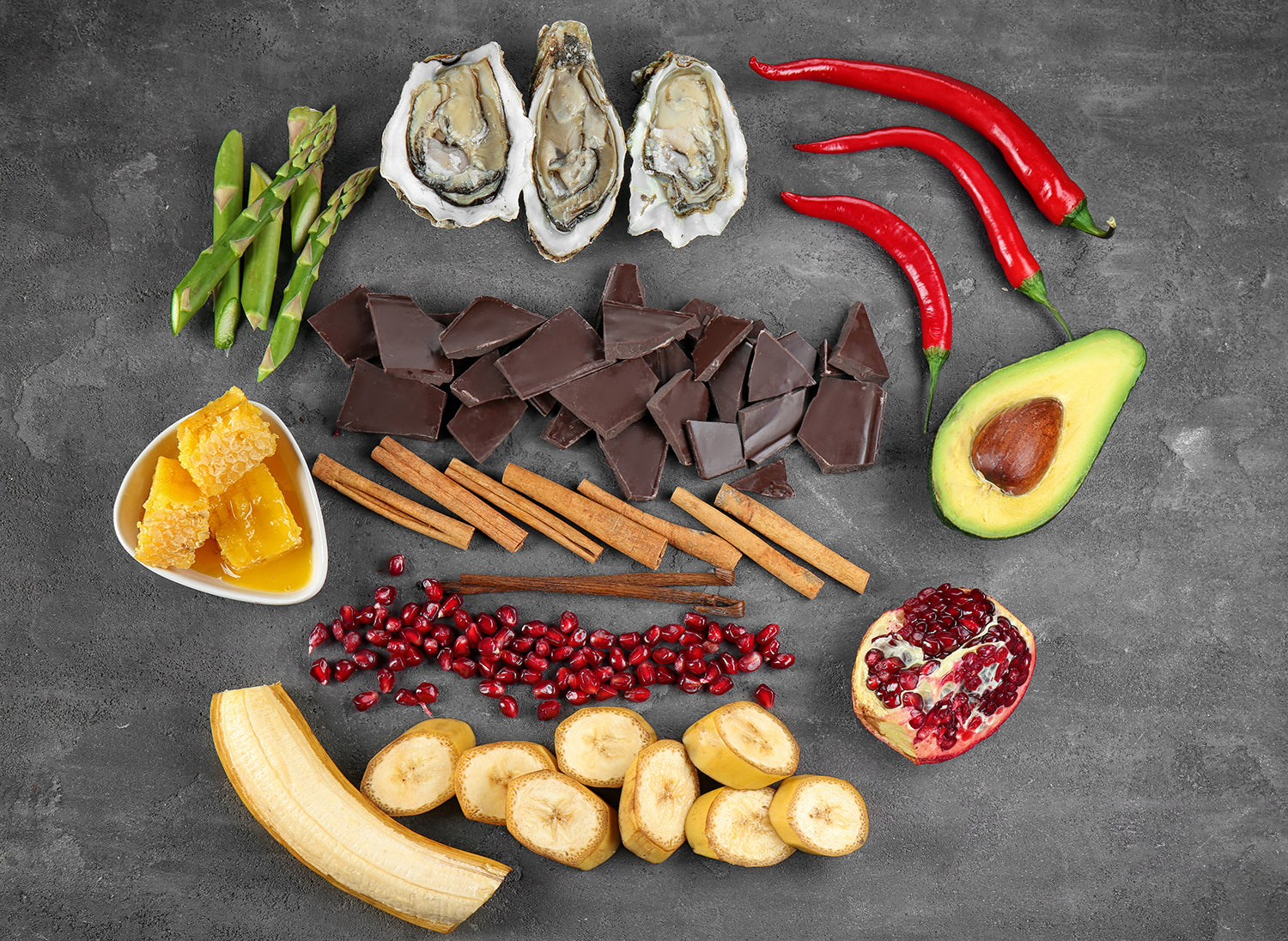As we know, there are numerous ways to win over a woman’s heart. But what if I say that an artfully designed and aesthetically packaged box full of handmade premium Schoko Chocolates is all you need to win the heart of your woman? Would you take it as just another cheap advertisement to sell more chocolates? You can but before you click the red marked ‘X’ button on the right hand top corner of your computer screen or leave the page from your mobile browser, give me a few minutes of your time to ratify my case.
But before getting into the ‘sciency’ stuff, let me share some historic detail about chocolate being aphrodisiac.
A Bit Of A History Lesson
The myth actually started to take shape way back. The Aztec emperor Moctezuma (c. 1466-1520) believed that chocolate was a powerful aphrodisiac. So he drank a considerable amount of the bitter beverage derived from cocoa before he would spend time with one of his many partners. Although no one ever knows for sure if that bitter beverage helped Moctezuma romantically. But the high esteem given by the emperor to chocolate was enough to lead the conquistadors to believe that chocolates were indeed helpful for romantic encounters with the loved ones. And they took that belief to mainland Europe with them.
So, chocolate and the myth of it’s being aphrodisiac crossed the Atlantic with the Spanish conquest and propagated throughout Europe. The elite in Spain, Italy, France and Austria were seduced by chocolate and in retrospect, became a symbol for seduction. In England, chocolate shops were opened and perceived as places where chocolates could help the immoral ambitious to plan for scheme, social climbing along with practicing loose morals and merriment of dubious kinds. Charles II (1630-1685) tried to ban drinking chocolate, coffee, tea and sherbet in popular meeting places but that didn’t work out as planned.
Though the Church’s point of view was not unanimous, most took it as sinful to drink this bitter, steamy drink since that would ‘drive’ unblemished souls towards immoral pleasures. But the socialites specially the aristocratic women at that time viewed chocolates in the exact opposite light of the then clergymen. A famous example of the aristocratic love for chocolates was Madame de Pompadour. She drank chocolates with amber so that she could appear sharp and rigid in the eyes of her lover. I can name a few more prominent names just to prove that the popular belief about chocolates at that time was that chocolates were indeed aphrodisiac.
Around the mid-18th century, chocolate drinking started losing its aristocratic vibe. It started gaining popularity with the mainstream population and became a commonplace consumer product. After the invention of solid chocolate, chocolate drinks gradually lost its appeal. But chocolate never once became a food for nourishment, rather it was always treated as a treat for enjoyment or a gourmet indulgence.
What Science Has Got To Say About It
The academics might say that chocolates being romantic are entirely contextual. Theobroma cacao literally means drinks of Gods. That’s why when a true lover worships his or her significant other, doesn’t she or he deserve gifts that only are only worthy for Gods? Do you see the logic?
Forgive me for getting awry and let me tell you what science has got to say about chocolates. Cocoa products have numerous active biological components - methylxanthines, biogenic amines, flavanols and cannabinoid-like fatty acids etc that have positive impacts on human health. Some studies conclusively suggest that moderation in regular chocolate consumption is associated with reduced risk of cardiovascular disease and mood disorders.
Chocolate over-enthusiasts (yes, there are some who are more in love with chocolate than me) usually try to hypothesize about chocolate’s having a direct affect on female sexuality. Unfortunately it’s almost believable but not a fact backed by solid data. It means, though some studies have pointed out that women who have bigger libidos eat chocolates than those who don’t, it necessarily doesn’t establish the cause and effect.
Still today, scientists are hard-pressed to find biological evidence to establish chocolate – or any other kind of food or beverage for that matter – acts as an aphrodisiac. The foods that are ascribed with aphrodisiac qualities usually leave a potent placebo effect. In short, they make you think about sex.
Another secret of chocolate’s charm is sympathetic magic. This idea is whenever things are similar, it could become probable to pull together the same results from them. We know that sex and chocolate have many things similar. Our blood vessels dilate (vasodilatation) and accentuate flushing. That’s why chocolate enthusiasts (not me) sometimes unapologetically opines about one creating the desire for having the other.
Chocolate has two chemicals that are said to create arousal. One of them is tryptophan - the building blocks that make serotonin - the brain chemical responsible for arousal. The other one is phenylethylamine which is related to releasing amphetamines, and this incident occurs when people fall in love. That’s why it is the popular belief that with these two chemicals being in the same food and working together easily makes the chocolate an aphrodisiac. But I am heartbroken to say that the amount of these two chemicals that a regular piece of chocolate bar can contain is insignificant. The amounts present are deemed insignificant because they are not enough to create substantial change in brain chemistry. A number of studies have found this to be the fact.
You see, science is actually not on my side to prove my case’s validity. Yet, I vehemently suggested otherwise.
Let me try from another angle.
It so happens that it necessarily doesn’t matter what chemicals are in the chocolates rather it matters most and leave people more amorous when people receive something that transpires bonding, affection, fondness and ultimately the strongest of all – love.
At least, science is on my side on this front. Just receiving a gift can make the brain’s reward center go hyper-drive and start releasing a boatload of dopamine, the neurotransmitter that makes us ‘feel-good’. And when the gift in question happens to be good, as in a box of chocolates from Schoko Chocolates, you can guess what happens next! The brain starts pumping out oxytocin, the chemical responsible for creating love and bonding. Oxytocin can also release stress reducing serotonin. So, it is only natural that a big present or the gift can make the brain trigger arousal signals.
So, it is obvious that science has not yet proven chocolate’s undoubtable potency as aphrodisiac. But giving chocolates as presents send all the right signals and bring two souls close. And that my friends, is the success of chocolates.
Now, I rest my case - the decision is yours to make.
Thank you.



